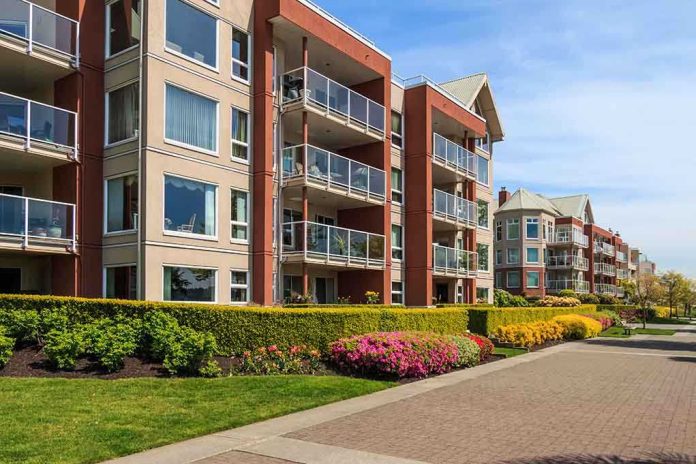
A San Francisco landlord’s rental criteria ignite fierce debate, spotlighting a major legal loophole in housing discrimination laws.
Story Highlights
- Landlord restricts rental applications to MAGA voters and Israel supporters.
- Legal under California law but sparks public backlash.
- Exposes gaps in housing discrimination protections.
- Highlights growing polarization in San Francisco’s housing market.
Controversial Rental Policy in San Francisco
In August 2025, a San Francisco landlord listed a two-bedroom apartment for $3,500 per month, but with a catch: only MAGA voters and Israel supporters were invited to apply. The listing, posted on Zillow, quickly garnered national attention and ignited public outrage. Tenant rights attorneys were quick to point out that, under California law, political affiliation is not a protected class, making the landlord’s actions technically legal but highly controversial.
The listing was live from August 5 and was removed on August 21, after significant media coverage and public pressure. This incident shines a light on the intersection of political discrimination and tenant rights, particularly in a city grappling with a severe housing crisis and a highly competitive rental market driven by tech and AI sector growth. The explicit political and international support criteria used by the landlord, Alexander Baran, is unprecedented and has sparked debate on the ethics and legality of such practices.
Legal Framework and Challenges
California’s Fair Housing laws do not classify political affiliation as a protected class, which means landlords can legally make rental decisions based on tenants’ political beliefs. This legal gap has prompted calls for reform to protect individuals from discrimination based on political views. Tenant rights attorneys argue that while owners should have some discretion, such explicit political criteria cross ethical boundaries and undermine fair access to housing.
In this case, the landlord, Alexander Baran, defended his actions, although he declined to offer detailed public comments. Baran’s decision has raised questions about the extent to which personal beliefs should influence business decisions, particularly in essential services like housing. The situation has drawn attention to the broader social and economic impacts of such policies in an already polarized environment.
Implications for Housing and Society
The fallout from this case is likely to have long-term implications. In the short term, it excludes individuals who do not share the landlord’s political views, potentially affecting the diversity of applicants in San Francisco’s rental market. In the long term, this may lead to legislative efforts to include political affiliation as a protected class under housing discrimination laws, increasing scrutiny of landlord practices and prompting a reevaluation of civil rights protections.
The broader societal impact includes increased polarization and debates over civil liberties. As the nation’s political climate becomes more divided, cases like this highlight the urgency for clear legislative guidelines to ensure fair treatment in housing and other critical services. The implications extend beyond San Francisco, potentially influencing housing policies nationwide.
Sources:
San Francisco Landlord Restricts Rental Showings to MAGA Voters, Israel Supporters
San Francisco Landlord MAGA Voters Apartment
San Francisco Landlord Lists Apartment Rental for Only MAGA Voters and Israel Supporters



